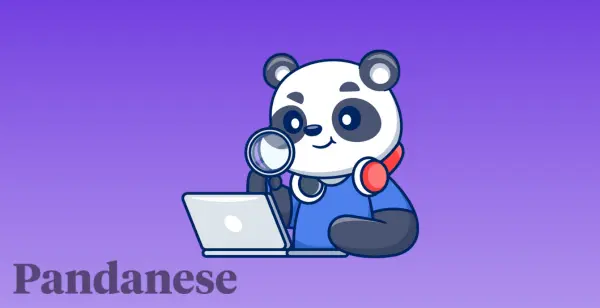
Exploring the Mogwai Meaning in Chinese Culture
Get ready to uncover the secrets to the Mogwai meaning in Chinese culture from evil purposes, rain, and how they have become popular after one certain movie.
The hidden meaning of Mogwai
"Mogwai" has many hidden meanings in Chinese culture and even Greek terminology. Let's take a closer look.
The Chinese word for Mogwai
In Cantonese, 魔怪 (mó guài) can be broken into "魔" (mó), which can mean demonic spirits, and "怪" (guài) can mean "monster" or "strange creature." So together, it can be best translated as a supernatural and mysterious creature.
While in Mandarin, 魔鬼 (mó guǐ) can be broken into 魔 (mó), which can refer to "demon" or "evil spirit," and "鬼" (guǐ), which can mean "ghost" or "spirit." So 魔鬼 can refer to a creature's supernatural abilities.
Both 魔怪 and 魔鬼 have similar meanings, but the difference lies in their second character to describe the creature. So in Cantonese, 怪 emphasizes its monstrous and odd characteristics, while Mandarin's 鬼 implies a more ghostly or supernatural aspect.
The Sanskrit influence Mogwai
Both Chinese terms 魔怪 (móguài) and 魔鬼 (móguǐ) are connected to Sanskrit through their etymology and the influence of Sanskrit on Chinese language and culture.
The character 魔 (mó) in both terms originates from the Sanskrit term "मार māra," which signifies 'evil beings' or 'demons.' The character 鬼 (guǐ) in 魔鬼 (móguǐ) initially meant 'ghost' but evolved to represent vengeful spirits. These terms reflect the cross-cultural exchange facilitated by transmitting Buddhist teachings from India to China, with Sanskrit-derived concepts adapting to the Chinese language and thought.
The Greek term “Diabolos” and its relation to Mogwai
While writing this article, there is a lot of connection between the Greek term "Diabolos" and the Chinese term Mogwai.
In the Chinese language, biblical texts tends to translate 'satan' and 'diabolos' as mogui, such as in the Book of Job.
The definition for diabolos, which can mean "slanderer" or "accuser," resembles the meaning of Mogwai in Chinese culture, as both entities are considered forces that can tempt people into doing evil deeds.
Despite the different cultures and interpretations, both can recognize the meaning of evil and monstrous.
Chinese mythology on Mogwai

A demon in Chinese tradition, mogwai folklore | Monster Wiki
Mogwai and rain
Chinese tradition has rain for Mogwais' mating season. Rain symbolizes good luck and peril, as Mogwai will cause chaos due to their nature.
With Mogwai, rain is a reminder highlighting the duality of good and evil.
Another way of looking at Mogwai and rain is transformation and growth. Again, rain signifies rich luck and purification, while Mogwai can represent chaos and death. Thus these two items together embody a juxtaposition of positive and negative forces.
Mogwai and harming others
Chinese myth has Mogwai be mischievous and evil creatures that can inflict harm on people. During their mating and rainy season, they change where they can cause havoc, misfortune, or illness, illustrating the fear towards them.
Recognizing them as potential dangers through a Chinese cultural lens, you can gain insight into superstitious beliefs.
Thus, in modern Chinese, Mogwai can refer to dead spirits or can simply means deceased spirits or souls of non-family members that will take revenge on living humans who caused them pain when they were still living.
Mogwai in classic films

Gizmo, the Mogwai, in the film Gremlins | Gremlins Wiki
Mogwai have become a cultural phenomenon, and their presence in popular media such as movies, books, and comics has undoubtedly propelled them to icon status.
The classic 1984 film "Gremlins" is the most prominent example of how these creatures impacted us today. The Mogwai pet are small furry innocent creatures that transform into Gremlins when fed after midnight. In their gremlin form, they bring chaos and terror.
The most famous Mogwai from that film is Gizmo, who has cemented Mogwais' popularity across generations.
Frequently Asked Questions
What is the meaning of Mogwai?
Mogwai comes from the Cantonese word 魔 怪 and the Mandarin word 魔 鬼, meaning evil beings, monsters, or demonic spirits.
Where does the name Mogwai come from?
The word Mogwai comes from Chinese mythology, referring to a type of evil creature or demon.
To summarize
Mogwai has become popular thanks to the movies Gremlins. But that term has been used in Chinese culture before. Taking at the mythological background, you can appreciate the Mogwai meaning more, their lore, what the rain can represent, and an insight into old and modern Chinese superstitions.
The easiest way to learn Chinese & build vocabulary

